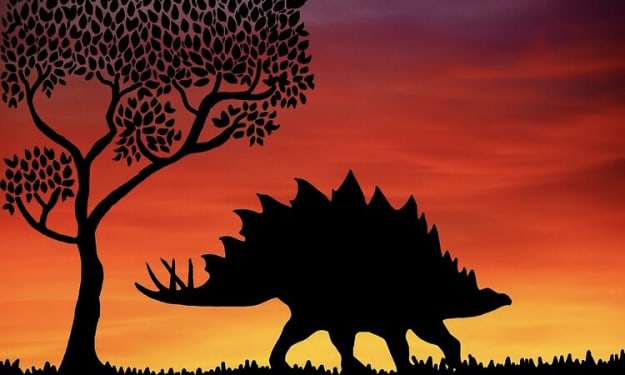
The process of growing new life is beautiful and complex. Eating a nutritious diet is key to supporting your body in one of life's most difficult tasks. The best foods to eat during pregnancy support both parent and baby during this critical time of increased nutritional needs.
According to the American College of Obstetricians and Gynecologists (ACOG), you need an extra 340 calories per day in late pregnancy, and a little more in late pregnancy. That's about the same amount of calories you'd get from an apple with two tablespoons of peanut butter and a glass of milk
Of course, where those calories come from matters more than the numbers.Here, nutrition experts discuss how to get the most out of your pregnancy diet.
CLICK HERE TO ENTER $50,000 Sweepstake
1. FISH
In the past, pregnant women have been told not to eat fish and other seafood, and those with high levels of mercury, a toxic heavy metal that the ACOG says is linked to birth defects. However, there are many types of fish that are safe to eat during pregnancy.
It may be a hard sell when it comes to morning sickness, but especially oily fish are swimming nutrients that are essential for your baby's brain and eye development.
Pregnant women should eat 8 to 12 ounces of low-mercury seafood such as salmon, bonito, and trout each week, says RDN, LD, a prenatal nutritionist, certified breastfeeding educator, and The Seven-Ingredient. says Lauren Manaker, author of Healthy Pregnancy Cookbook. n
Oily fish are a good dietary source of omega-3 fats, especially a type called docosahexaenoic acid (DHA). This healthy fat is good for pregnant babies and parents. "DHA is associated with a reduced risk of premature birth and the development of postpartum depression," says Manaker.
CLICK FOR "FIT TO BE PREGNANT" BOOK
For parents who are going vegan, Manaker suggests consulting a gynecologist about her seaweed-based DHA supplement.
Some types of fish also provide additional benefits of vitamin D, which most of us don't get enough of. According to ACOG, during pregnancy, vitamin D is used to build your baby's bones and teeth and helps promote healthy eyesight and skin. Trout, salmon, sardines and tuna provide vitamin D and much-needed omega-3 fatty acids.
WARNING:
If you're pregnant, the ACOG says you shouldn't eat big eye tuna, king mackerel, marlin, orange roughly, shark, swordfish, and tilefish.
You should also limit albacore tuna in your diet to just 6 ounces per week.Check advice on fish caught in local waters.
CLICK FOR "FIT TO BE PREGNANT" BOOK
2. EGGS
Eggs are one of those foods that have always been the subject of debate. But when it comes to pregnancy, there can be no doubt. Eggs are nutritional superstars because they are rich in choline, a very important nutrient.
"Choline is a nutrient that isn't always talked about in the prenatal world, but it should be," says Manaker. It's been linked to brain health in babies for a while."
CLICK HERE TO ENTER $50,000 Sweepstake
Not only that, but you may be missing choline from your prenatal supplements, advises Rachelle Mallik, a reproductive health nutritionist and founder of The Food Therapist. According to ACOG, pregnant women need at least 450 milligrams of choline per day.One egg provides 169 milligrams of choline. Other foods high in choline include:
-chicken
-lean beef
-milk
-soy products
-peanuts
CLICK FOR "FIT TO BE PREGNANT" BOOK
3. Milk
Milk provides many nutrients needed during pregnancy, including:
-Calcium – for strong bones and teeth
-Vitamin B12 – Helps form new red blood cells
-Vitamin A – for healthy eyes, skin and bones
-Vitamin D (Concentrate) – For Bones, Teeth & Immune System Support
Milk also contains iodine, and while you might otherwise get enough of this mineral from iodized salt, you'll need even more iodine during pregnancy.
CLICK HERE TO ENTER $50,000 Sweepstake
“I learned that iodine is important for thyroid hormone production and fetal development,” says Malik. "The need for this nutrient increases by about 50% during pregnancy." Specifically, you need 220 micrograms of iodine per day, according to ACOG.
The amount of iodine in milk can vary considerably, according to a May 2020 study in Nutrients.On average, a glass of milk provides about 94 micrograms of iodine, according to the USDA
Drinking a glass or two of milk can help you reach your daily iodine intake goal. Malick also recommends other sources of iodine, such as eggs, seafood, and iodized salt.
CLICK HERE TO ENTER $50,000 Sweepstake
4. BEANS
The options for beans and legumes are endless: black beans, chickpeas, pintos, lentils, peas. These plants are the best foods for pregnancy as they provide nutrients.
Legumes are rich in fiber, which is especially important during pregnancy. Constipation is a common problem during pregnancy with all the hormonal changes your body is going through.
CLICK HERE TO ENTER $50,000 Sweepstake
Adding a tablespoon or two of beans per day can help you get the fiber you need to stay on track. Remember to increase your fiber intake slowly and drink plenty of water to avoid stomach upset.
Beans and legumes also provide important iron during pregnancy. "Pregnant women are at a higher risk of iron deficiency because their daily requirements are much higher," says Bianca Tamburello of RDN. Foods rich in iron are recommended.
Blood volume (which is just a quirky way to describe how much blood circulates in your body) increases slightly during your first pregnancy, but then jumps big in your second and her third.
CLICK FOR "FIT TO BE PREGNANT" BOOK
According to a December 2019 report from BMC Pregnancy and Childbirth, some studies show that blood volume can increase by as much as 48% from the start of pregnancy to the end of the third trimester.
You can get iron from animal foods such as lean beef, chicken, and fish. Plant foods such as beans and legumes also contain iron, but it may not be absorbed by the body.
"Although the iron found in animal foods is best absorbed by the body, there are ways to maximize iron absorption from vegetarian foods," says Tamburello. When combined with vitamin C-rich foods such as orange juice, tomato juice, and strawberries, iron absorption may be enhanced.
CLICK HERE TO ENTER $50,000 Sweepstake
5. Potatoes - sweet and white
Sweet potatoes are he one of the best foods to eat during pregnancy. A medium-sized sweet potato provides more than 100% of the recommended amount of vitamin A needed during pregnancy in the form of beta-carotene.
There are two forms of vitamin A:
Formed vitamin A: animal products such as milk, cheese, yogurt, liver, and fish oil
Provitamin A (or carotenoids): Plant foods such as sweet potatoes, cantaloupe, carrots, mangoes, and apricots
Vitamin A is essential for eye health and the development of your baby's eyes, organs, bones and immune system, according to Nutrients' March 2019 report.
CLICK FOR "FIT TO BE PREGNANT" BOOK
Although vitamin A deficiency is a public health concern worldwide, it is not common among Americans. In fact, vitamin A supplementation can cause toxicity, which is a real danger during pregnancy. Eating foods that contain beta-carotene is a safer way to ensure you are getting the nutrients you need.
White potatoes are often vilified in the nutrition world, but they're actually packed with essential nutrients. According to ACOG, white potatoes contain vitamin C and vitamin B6, both of which you need more of during pregnancy.
Then prepare sweet potatoes and white potatoes with skin on. This will give you more of the fiber you need.
CLICK HERE TO ENTER $50,000 Sweepstake
Read more: Can You Drink Pineapple Juice While Pregnant?
6. Foods With Folate
Folate is a B-vitamin that's used in the formation of our red blood cells, but it has particular importance before and during pregnancy, according to the ACOG.
Folate is the natural form of vitamin B9 found in food. Taking in enough B9 will help prevent birth defects of baby's brain and spine — specifically, a neural tube defect called spina bifida.
This vitamin also supports the healthy growth and development of baby and the placenta (which is why you need more during early pregnancy).
CLICK FOR "FIT TO BE PREGNANT" BOOK
The ACOG and the Center for Disease Control and Prevention (CDC) both recommend taking prenatal supplements with folic acid, the synthetic form of folate, to prevent neural tube defects. Folic acid is said to be more heat-stable than folate, and therefore more appropriate for supplements.
"Although there are some prenatal supplements that contain folate, the CDC urges people to stick to folic acid because folate has not been shown to offer the same risk reduction according to the medical literature," Manaker says.
While pregnant, you need at least 600 micrograms of folic acid each day, and the ACOG recommends taking a daily prenatal vitamin with at least 400 micrograms starting at least 1 month before pregnancy.
CLICK HERE TO ENTER $50,000 Sweepstake
Eating foods high in folate before and during pregnancy can help you ensure you're getting enough of this super important nutrient. Add in options like:
-Spinach
-Romaine lettuce
-Avocado
-Kidney beans
-Orange juice
-Broccoli
-What About Prenatal Vitamins?
CLICK FOR "FIT TO BE PREGNANT" BOOK
If you're thinking about getting pregnant or you just found out you're expecting, getting enough of the right vitamins and minerals is extremely important, and it's likely your doctor will recommend that you start taking a quality prenatal vitamin.
But as it is with all supplements, don't believe the hype around expensive or celeb-endorsed products. Go with brands you trust, and when in doubt, ask your doctor for advice if you need help choosing.
When you're shopping, the ACOG recommends making sure the following nutrients are in your supplement:
-Omega-3 fatty acids
-Choline
-Calcium
-Iodine
-Iron
-Vitamin B12
-Vitamin C
-Vitamin B6
-Folic Acid
CLICK HERE TO ENTER $50,000 Sweepstake
Your doctor may be able to prescribe a prenatal vitamin, but if not, here are a few dietitian-recommended brands to try:
Top 4 Prenatal Supplements
Nature Made Prenatal + DHA: ($14.62, Amazon)
Deva Prenatal Vitamins: ($12.64, Amazon)
Olly Essential Prenatal: ($15.99, Amazon)
Garden of Life Mykind Organic Prenatal ($49.87, Amazon)






Comments
There are no comments for this story
Be the first to respond and start the conversation.